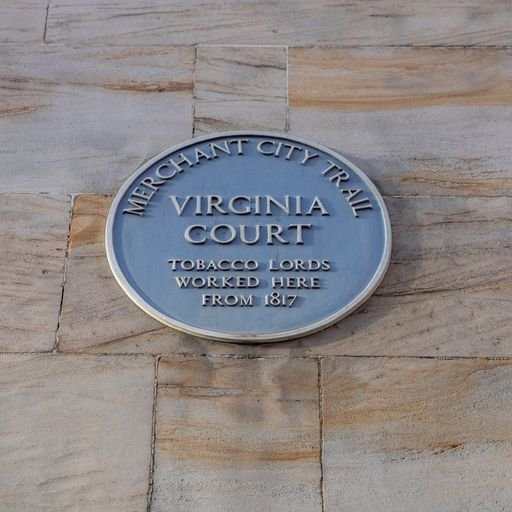Acknowledgement ✅ Apology ✅ Action?
A recently published audit conducted by Dr Stephen Mullen on behalf of Glasgow City Council has highlighted some of the historical links between the city of Glasgow and transatlantic slavery. The audit has provided significant insight into the wealth that came into the city of Glasgow from industries such as tobacco and sugar that were built upon the labour of enslaved peoples.
One focus point of the audit is the historical ties between Glasgow Town Council and chattel slavery. Glasgow Town Council is a historical institution that is the predecessor to the present-day city council. In 1895 Glasgow Town Council became part of the Corporation of the City of Glasgow ("Glasgow Corporation") and relocated to the City Chambers building where the city council is based in the present day.
Between 1636 to 1834, Glasgow Town Council had seventy-nine Lord Provosts, forty of which had some connection to chattel slavery. This includes Andrew Cochrane, a notable Glaswegian enslaver, who made millions (in today’s money) from slavery and was appointed Lord Provost three times between 1745 and 1760. Cochrane Street in Glasgow City Centre is named after him. There is also a monument to him at Glasgow Cathedral. He is just one of many Lord Provosts of Glasgow in the 18th and 19th centuries who became wealthy from industries such as tobacco and sugar that were built upon chattel slavery.
Glasgow Town Council was well connected historically to transatlantic slavery, Glaswegian enslavers held significant economic and political capital well into the 19th century. In 1696 Glasgow Town Council invested £1812 (worth over £4 million today) in the Company of Scotland, a state-run colonial scheme that was involved in the trafficking of enslaved peoples. The council also used the connections of some of its Lord Provosts to loan money from wealthy enslavers; this includes receiving a loan of £1,500 (worth nearly £3 million today) in 1759 from Robert Dinwiddie, an enslaver from Virginia who had ties to Glaswegian enslavers. These examples highlight not only the wealth that came to the city from chattel slavery but also the direct connections and ties that a key historical Glasgow institution had to transatlantic slavery and the significant political influence many enslavers held in the city.
Virginia Court located in Glasgow City Centre. One of the several street names in Glasgow that highlights a connection between the city and transatlantic slavery.
After the abolition of chattel slavery in 1833, the Glasgow Corporation and City Council continued to benefit from the wealth acquired by many Glaswegian enslavers. This included Pollok House was given to the City of Glasgow by descendants of the Stirling-Maxwell family in 1966. The family had owned the house for over 700 years and had many connections to transatlantic slavery. Sir Walter Maxwell (1732-1762) was an enslaver who owned plantations in Jamaica and had connections to many other enslavers across Glasgow and the West of Scotland and many other members of the Stirling-Maxwell family became wealthy through involvement in chattel slavery.
Glasgow City Council recently apologised for its role in transatlantic slavery. Council Leader Susan Aitken, when discussing the slavery audit in a council meeting on the 31st of March, highlighted the legacies of racism present in Glasgow:
"Many who are alive today still live with the legacy of racism whose roots can be traced directly back to what was white supremacy codified in law and the country's whose populations were stolen and enslaved suffer still.”
The apology from the council must represent the start of wider action. Glasgow is a city that in the present day struggles with issues of institutional racism. Many of the historical roots of this racism can be traced back to times of colonialism, empire, and transatlantic slavery. The Glasgow slavery audit offers a deep exploration of the legacies of transatlantic slavery and how wealth made from chattel slavery has shaped Glasgow historically as a city and influences it in the present day.
Any action taken in response to the audit must address the racism and discrimination faced by Black and minority ethnic people living in Glasgow today. A failure to do so would represent a failure to address many of the key issues and legacies of historical racism that the audit raises.
Glasgow, Slavery and Atlantic Commerce: An Audit of Historic Connections and Modern Legacies by Stephen Mullen can be read here

